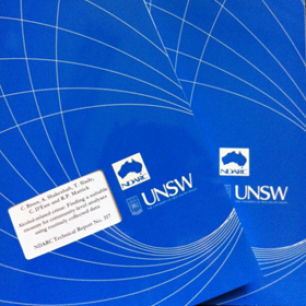NDARC Monograph No. 33 (1997)
SUMMARY AND ACKNOWLEDGMENTS
Western medicine and, in particular, the field of substance use, have much to learn from other cultures. By examining the cultural lenses used to organise drug use we can begin to improve the range, acceptability, and efficacy of options designed to reduce the harms associated with substance use in a multicultural society.
This monograph provides a timely and comprehensive review of the research literature on heroin use in Indo-Chinese (Cambodian, Lao, and Vietnamese) communities in South West Sydney. Based on recent research conducted by the National Drug and Alcohol Research Centre, it summaries the findings of these studies and discusses their implications for the field and the communities themselves. While the report focuses on particular ethnic and cultural minority groups, it is not intended to stigmatise these communities, and it remains important to note that the majority of people from Indo-Chinese backgrounds do not use illicit drugs.
"Culture" has become something of a buzz word in the addictions field. It is often used in an unreflexive way as, for example, in generic calls for services which are "culture-sensitive" and "culturally-appropriate". This monograph attempts to unpack a particular set of cultural beliefs and attitudes (those which originate in Indo-Chinese parent cultures) and to examine their influence on heroin use and related issues. As such, it represents the beginning of a larger project designed to acknowledge the cultural specificity of drug use and to explore how experiences of drug use are mediated by different beliefs, values, and traditions.
Current concepts of substance use and related experience are Anglo-centric and based on Western notions of health, illness, and identity. The stereotype of the injecting drug user - the Anglo-Australian "junkie"- has been in place for many years. Demolishing this stereotype is both important and difficult: important because it has dominated both the research literature and the development and provision of services, and difficult because the tendency is often to replace one stereotype with another. We hope that by elucidating and clarifying some of the issues involved in heroin use in a particular set of NESB communities, this monograph will challenge that stereotype, rather than replace it with another.
This report was initially commissioned by Robert Ali and colleagues as part of a study to evaluate the acceptability and efficacy of tincture of opium in the treatment of opioid dependence. We thank them for their encouragement and acknowledge their permission to reproduce this work here. We are grateful to our Director, Wayne Hall, for helpful advice and comments on an earlier draft and to Vincent Doan, Thuy-Vi Le, and Tram Nguyen for their research assistance and support. Finally, we are indebted to the Indo-Chinese heroin users upon whose experience this monograph is based.


